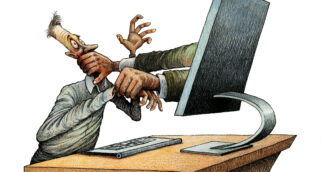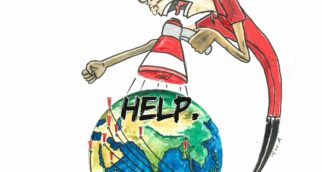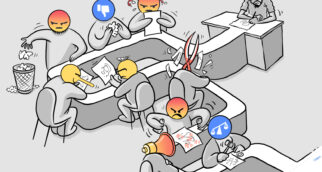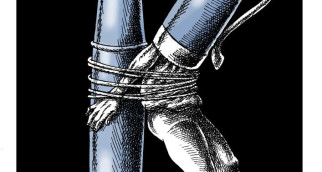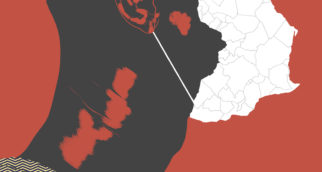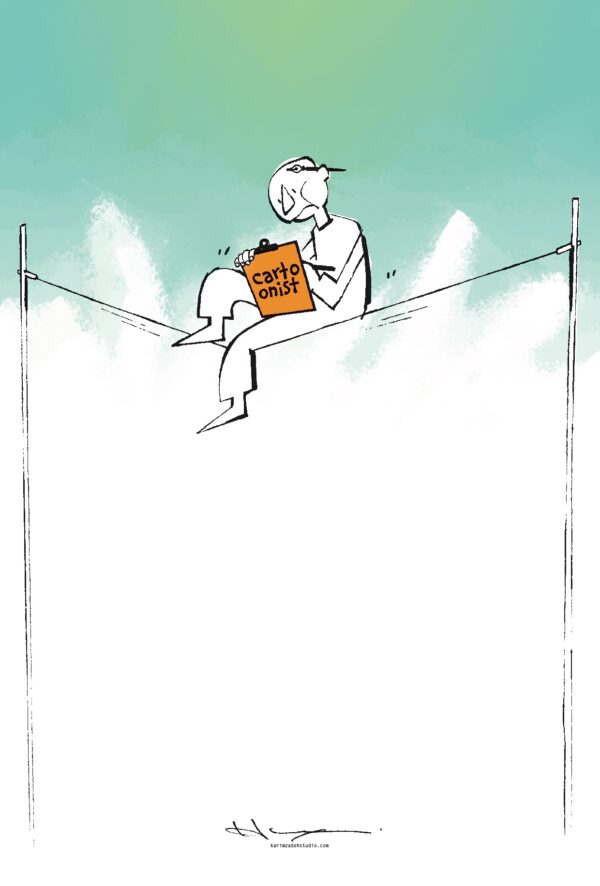
Cartooning for Peace provides support and visibility to cartoonists who are threatened and prevented from exercising their profession freely. Through this mission, the organisation asserts its commitment to defending freedom of expression when its infringement is directly linked to press cartoons.
Press cartoonists are a “barometer of freedom of expression”, often on the front line of repression, highlighting sensitive areas around the world.
Cartooning for Peace alerts and provides support, but believes that prevention is also the key to success. Thus, the organisation monitors and informs itself about the situation of press cartoonists in the world, contributes to providing them with visibility that can sometimes be life-saving, produces practical tools, publishes reports and, above all, sets up projects (see below) to provide resources and advice.
Cartoon: Hassan (Iran)
Reporting of alerts concerning press cartoonists, as well as the trends and mechanisms underlying censorship (with a focus on online censorship), and their media coverage.
7 Burmese cartoonists in exile who are determined to bear witness to what is happening in their country and to learn about press cartooning.
Encourage the sharing of experience and dialogue about the challenges that accompany the publication of press cartoons online in order to draw lessons and recommendations.
Improve the legal protection of editorial cartoonists and thus contribute to an environment of free, plural and quality information for all citizens.
Strengthening of access to information and the promotion of freedom of expression in Africa.
